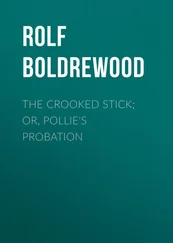Rolf Boldrewood - Plain Living
Здесь есть возможность читать онлайн «Rolf Boldrewood - Plain Living» — ознакомительный отрывок электронной книги совершенно бесплатно, а после прочтения отрывка купить полную версию. В некоторых случаях можно слушать аудио, скачать через торрент в формате fb2 и присутствует краткое содержание. Жанр: foreign_antique, foreign_prose, на английском языке. Описание произведения, (предисловие) а так же отзывы посетителей доступны на портале библиотеки ЛибКат.
- Название:Plain Living
- Автор:
- Жанр:
- Год:неизвестен
- ISBN:нет данных
- Рейтинг книги:4 / 5. Голосов: 1
-
Избранное:Добавить в избранное
- Отзывы:
-
Ваша оценка:
- 80
- 1
- 2
- 3
- 4
- 5
Plain Living: краткое содержание, описание и аннотация
Предлагаем к чтению аннотацию, описание, краткое содержание или предисловие (зависит от того, что написал сам автор книги «Plain Living»). Если вы не нашли необходимую информацию о книге — напишите в комментариях, мы постараемся отыскать её.
Plain Living — читать онлайн ознакомительный отрывок
Ниже представлен текст книги, разбитый по страницам. Система сохранения места последней прочитанной страницы, позволяет с удобством читать онлайн бесплатно книгу «Plain Living», без необходимости каждый раз заново искать на чём Вы остановились. Поставьте закладку, и сможете в любой момент перейти на страницу, на которой закончили чтение.
Интервал:
Закладка:
Here his fair neighbour, who had finished her soup and sipped her sherry, began to hint an assertion of social rights.
“Don’t you think dear Josie looks a little pale and thin, though she is exquisitely dressed as usual? But I always say no girls can stand the ceaseless excitement, the wild racketing of a Sydney season. Can they, now?”
“To my eye she looks very nice, pale if you like; but you don’t expect roses and lilies with the thermometer at 80° for half the year, except when it’s at 100°.”
“Well, perhaps you’re right; but it isn’t the climate altogether in her case, I should say. It’s the fearfully exciting life girls of her monde seem to lead nowadays. It’s that which brings on the wrinkles. You notice her face when she turns to the light.”
“Are women worse than they used to be, do you think; or is Josie more dissipated than the rest of her age and sex?” queried Stamford.
“I don’t know that, though they do say that she is the fastest of a very fast set; and between you and me, there have been some rather queer stories about her, not that I believe a word of them. But the girls nowadays do go such awful lengths; they say and do such things, you don’t know what to believe.”
“Ah! well, she’s young and happy, I suppose, and makes the most of her opportunities of enjoyment. My old friend, Bob Grandison, has been lucky, and his family seem to have everything they can possibly want.”
“Everything, indeed, and more besides. (Chablis, if you please!) Then I suppose you knew Mr. Grandison when he was not quite so well off? They say he got into society rather suddenly; but I’m afraid it doesn’t do the young people quite as much good as it might. There’s the eldest son, Carlo, as they call him – he used to be Charlie when I first knew them.”
“Why, what about him? Nothing wrong, is there? He seems a fine lad.”
“Well, nothing wrong yet. Not yet; oh, no! Only he spends half his time at the club, playing billiards from morning till night, and he’s always going about with that horrid gambling Captain Maelstrom. They do say – but you won’t let it go further – that he was one of that party at loo when young Weener lost five thousand pounds, and such a scandal arose out of it.”
“Good heavens! You horrify me! A mere boy like that! It can’t be true; surely not.”
“I heard it on good authority, I assure you, and other stories too, which I can’t repeat – really too shocking to talk about. See how empresse he is with that Mrs. Loreleigh! What men see in that women I really can’t think.”
“My old friend had both sense and right feeling once upon a time,” said Stamford. “He can’t be so weak as to allow all this.”
“He does all he can, poor old gentleman; but Mrs. Grandison is so absurdly vain about Carlo’s good looks, and the fine friends he goes about with, that she can’t see any danger. Lord Edgar Wildgrave and that Sir Harry Falconer who was here last year (you know they do say that Josie broke her heart about Lord Edgar, and that makes her so reckless). But I know his father is very uneasy about him, and well he may be. I’m afraid Ned bids fair to follow in his brother’s footsteps. Thanks – I will take an olive.”
“What a wretched state of things!” groaned Mr. Stamford, almost audibly. “I must hope, for the sake of my friend’s family, that matters may be exaggerated.”
“I wish they are, with all my heart,” said the candid friend. “They always have such delicious fruit here, haven’t they? I must say they do things well at Chatsworth House. I always enjoy a dinner here. I see Mrs. Grandison making a move. Thanks!”
And so Miss Crewitt followed the retreating file of ladies that, headed by Mrs. Grandison’s stately form, quitted the dining-room, leaving Mr. Stamford much disordered with the unpleasant nature of the ideas which he had perforce absorbed with his dinner. He could not forgive his late neighbour for introducing them into his system.
“Confounded, venomous, ungrateful cat!” he said in his righteous wrath. “How she enjoyed every mouthful of her dinner, pouring out malice and all uncharitableness the while! Serves Mrs. Grandison right, all the same. If she’d picked me out a nice girl, or a good motherly dame, I should not have heard all this scandal about her household. But what a frightful pity it seems! I must talk to Grandison about it.”
At this stage Mr. Stamford was aroused by his host’s voice. “Why, Harold, old man, where have you got to? Close up, now the women are gone. Bring your chair next to Carlo.”
He walked up as desired, the other guests having concentrated themselves in position nearer the head of the table, and found himself next to the heir of the house, Mr. Carlo Grandison. That young gentleman, whom he had observed during dinner talking with earnestness to a lady no longer young, but still handsome and interesting, in spite of Miss Crewitt’s acidulated denial of the fact, did not trouble himself to be over agreeable to his father’s old friend.
He devoted himself, however, with considerable assiduity to the decanters as they passed, and drank more wine in half an hour than Mr. Stamford had ever known Hubert to consume in a month.
He did talk after a while, but his conversation was mainly about the last Melbourne Cup, upon which he admitted that he had wagered heavily, and “dropped in for,” to use his own expression, “a beastly facer.”
“Was not that imprudent?” asked Mr. Stamford, as he looked sadly at the young man’s flushed face. “Don’t you think it a pity to lose more than you can afford?”
“Oh! the governor had to stand the racket, of course,” he said, filling his glass; “and a dashed row he made about it – very bad form, I told him – just as if a thousand or two mattered to him. Do you know what we stood to win?”
“Well, but you didn’t win!”
“I suppose in the bush, Mr. Stamford, you don’t do much in that way,” answered the young man with aristocratic hauteur, “but Maelstrom and I, Sir Harry Falconer and another fellow, whose name I won’t mention, would have pulled off forty-five thousand if that infernal First Robber hadn’t gone wrong the very day of the race. Think of that! He was poisoned, I believe. If I had my will I’d hang every blessed bookmaker in the whole colony. Never mind, I’ll land them next Melbourne Spring.”
“If there were no young gentlemen who backed the favourite, there would be fewer bookmakers,” replied Stamford, peaceably. “But don’t you think it a waste of time devoting so much of it to horseracing?”
“What can a fellow do? There’s coursing, to be sure, and they’re getting up a trotting match. I make believe to do a little work in the governor’s office, you know, but I’m dead beat to get through the day as it is.”
“Try a year in the bush, my dear boy. You could soon learn to manage one of your father’s stations. It would be a healthy change from town life.”
“By Jove! It would be a change indeed! Ha, ha! ‘Right you are, says Moses.’ But I stayed at Banyule one shearing, and I give you my word I was that sick of it all that I should have suicided if I had not been let come to town. The same everlasting grind – sheep, supers, and saltbush; rides, drives, wire fences, dams, dampers, and dingoes – day after day. At night it was worse – not a blessed thing to amuse yourself with. I used to play draughts with the book-keeper.”
“But you could surely read! Books are easy to get up, and there are always neighbours.”
“I couldn’t stand reading out there, anyhow; the books we had were all dry stuff, and the neighbours were such a deuced slow lot. Things are not too lively in Sydney, but it’s heaven compared with the bush. I want the governor to let me go to Europe. I should fancy Paris for a year or so. Take another glass of this Madeira; it’s not an everyday wine. No! Then I will, as I see the governor’s toddlin’.”
Читать дальшеИнтервал:
Закладка:
Похожие книги на «Plain Living»
Представляем Вашему вниманию похожие книги на «Plain Living» списком для выбора. Мы отобрали схожую по названию и смыслу литературу в надежде предоставить читателям больше вариантов отыскать новые, интересные, ещё непрочитанные произведения.
Обсуждение, отзывы о книге «Plain Living» и просто собственные мнения читателей. Оставьте ваши комментарии, напишите, что Вы думаете о произведении, его смысле или главных героях. Укажите что конкретно понравилось, а что нет, и почему Вы так считаете.












